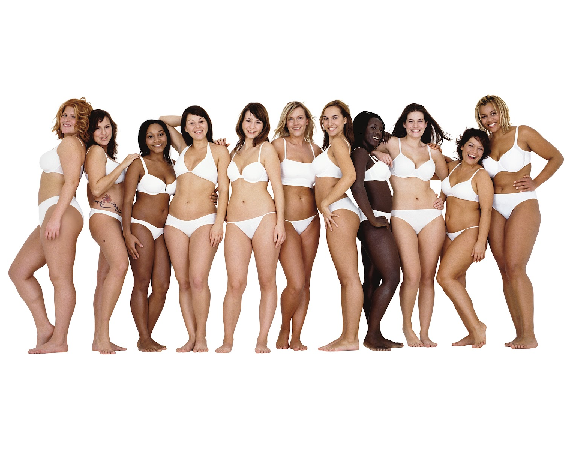Over the last few years, the ‘perfect’ body image no longer seems to exist. As a society we have learnt to embrace the diversity of women’s bodies, loving every shape, size and skin colour there is. The trend of being supermodel skinny is slowly dying and women are realising to love all the little imperfections that make us unique. It’s funny how history has a way of repeating itself. As we look back over the past few centuries, full figured, curvaceous women like Marilyn Monroe were supposedly the ‘ideal’ body image however a few decades later that soon changed with women being pressurised to look skinny and be a certain weight. In today’s world we’ve come full circle and women are now starting to love themselves for who they are, cherishing every lump and bump they have.
But are we getting a little too comfortable with those few extra pounds?
From the thigh gap trend to the hashtag #thickthighssavelives it has become very common now for individuals to post photos on social media of themselves with next to no clothes on showing off their curves with captions like ‘body positivity’ or ‘love your fat’ which most of the time I’m all here for. Take American popstar Mellissa Viviane Jefferson, professionally known as Lizzo for example. She has become one of the most influential figures in the body positivity movement, constantly posting images of herself on social media flaunting her curvaceous body. I do admit it is a breath of fresh air seeing women of her size so happy in their own skin however let’s be realistic, she is unhealthily overweight and her body size, in my opinion should not be desired. Her attitude towards loving yourself is amazing and it’s exactly the kind of content young women should be seeing these days however is it normalising obesity? Normalising obesity can not only mean that we can’t see it but it’s more likely to happen.

Social media has been utilised for many body positivity campaigns and a very successful one that comes to mind is the Dove ‘Real Beauty’ campaign, which aimed to build self confidence in women and young children by involving all kinds of women with realistic bodies from a range of different ethnicities. I feel this was a very smart and empowering campaign that portrayed the right message to women showing that you don’t have to be thin to be considered attractive.

Another campaign that tried to jump on the body positivity bandwagon was Cosmopolitan when they made plus size model, Tess Holliday the front cover of their October 2018 issue. This campaign encountered major backlash as the model was a UK size 26 and people felt it was promoting obesity. One individual who was particularly annoyed about this campaign was TV presenter Piers Morgan who immediately took to social media to voice his outrage. “As Britain battles an ever-worsening obesity crisis, this is the new cover of Cosmo. Apparently, we’re supposed to view it as a ‘huge step forward for body positivity.’ What a load of old baloney. This cover is just as dangerous and misguided as celebrating size zero models,” he wrote on Instagram.

Now I’m not the biggest Piers Morgan fan but I do have to agree with him on this one. Making the world more obesity friendly helps those who are already obese to feel less stigmatised and improve their self-esteem. The World Health Organization (WHO) regards childhood obesity as one of the most serious global public health challenges for the 21st century. This in fact could be very true if young people are growing up seeing campaigns just like this. I am all for loving yourself and being comfortable with how you look but I don’t agree with promoting an unhealthy body image and allowing people to believe its ok to be overweight as there can be serious health problems that stem from it.
In the UK:
- 67% of men and 62% of women were classed as overweight or obese in 2017
- At the age of 10-11 20.1% of kids in the UK are obese and 14.2% overweight
There are many health risks associate with obesity such as:
- High chance of getting type 2 diabetes
- Coronary heart disease
- Various cancers such as bowl or breast cancer
- High chance of a stroke
- High blood pressure
We all know that for most people the desired body image is not to be overweight or obese but the more that social media pushes these images in our face, it’s more likely to become acceptable. I understand that many of these campaigns using plus sized models or influencers showing off their curves on Instagram is a way of showing women they should be comfortable in their skin which is the most important thing. However, it could have a long-term negative effect on young people growing up if they are constantly seeing obesity being promoted in a positive way. What I’m trying to say is that we should not allow social media to brainwash us into thinking as long as we are happy it does not matter how physically healthy we are. It is very much possible that we can get to a place were both our bodies and minds are equally healthy with just a little bit of exercise and a balanced diet every day.
Aloisia Loughran is a final year BSc in Communication Management and Public Relations. She can be found on LinkedIn and Twitter.